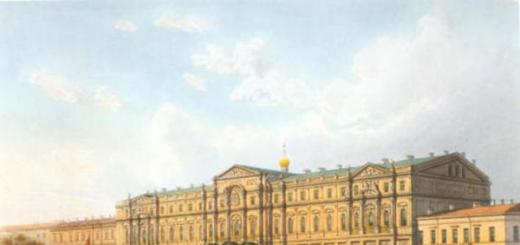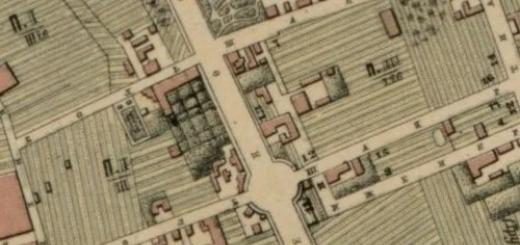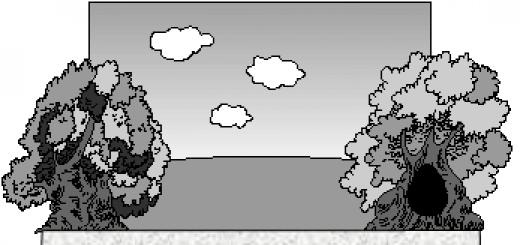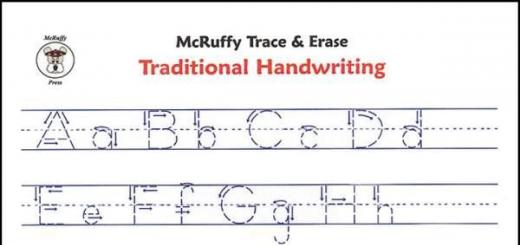One of the most famous documents of the early American history, a pamphlet essay by Thomas Paine (1737-1809) was anonymously published in the colonies in January 1776. Paine called the English king George (George) III "a royal monster", personally responsible for all acts of injustice committed against the American colonists. The 50-page pamphlet, printed in America with a circulation of 120 thousand copies, had a serious impact on the attitude of the colonists towards the British crown and became the most effective tool of anti-British propaganda in the struggle of the American colonies for secession from England.
Thomas Paine
In the pages that follow, I resort only to simple facts, understandable arguments and common sense and have no other intentions for the reader than to help him get rid of prejudices and preferences, to allow his mind and his feelings to independently determine, to contribute to that he may acquire, or rather not renounce, true human nature and broaden his views profoundly beyond the present situation.
Numerous volumes have been devoted to the theme of the struggle between England and America. People of all classes dealt with these contradictions from different motivations and with different calculations, but it was all to no avail and the period of debate was over. The outcome of the contest is decided by the weapon as a last resort: resorting to it was the choice of the king, and the Continent accepted this challenge.
The Sun has never seen a more noble goal. This is not the business of a single city, county, province or kingdom, but of the entire Continent - at least one eighth of the inhabited part of the globe. This is not a concern for one day, one year, or one century; future generations are actually involved in the confrontation, and they will, to one degree or another, experience the influence of current events almost until the very end of life on Earth. Today is the time for the birth of the Continental Union, faith and honor. The slightest break today will be like a name carved with the tip of a pin on the tender bark of a young oak tree; the wound will increase with the growth of the tree, and the name will appear before the descendants in large letters. The transition from negotiations to arms marked the beginning of a new political era - a new way of thinking emerged. All plans, proposals, etc., relating to the period before the nineteenth of April, that is, before the outbreak of hostilities, are like last year's calendar, which, being timely then, today has become unnecessary and useless. Everything that was put forward then by the defenders of opposing points of view. came down to the same thing, namely, an alliance with Great Britain. The only difference between the parties was the method of achieving it: one of the parties offered to resort to force, the other offered to be friends; but it so happens that today the supporters of the first way have failed, and the supporters of the second have lost their influence.
I have heard some argue that, just as America flourished under its former connection with Great Britain, the same connection is necessary in the interests of its future happiness and will always be just as necessary. Nothing could be more fallacious than an argument of this kind. We may just as well say that if a child has been raised on milk it should never be given meat, or that the first twenty years of our lives are destined to be the model for the next twenty years. But even these statements imply a distortion of the truth, and I immediately reply that America would prosper just as much, and perhaps even more, if no European power paid any attention to it. The trade by which she enriched herself is vital necessity, and it will always have a market, while consumption is the habit of Europe.
But she protected us, some say. It is true that she has consumed us; it is also admitted that she defended the Continent at our expense and at her own expense, and that she would have defended Turkey for the same reasons, namely for the sake of trade and dominion.
Alas! We have erred for a long time, we have been shackled by ancient prejudices, and we have made great sacrifices to superstitions. We boasted about the defense of Great Britain, without realizing that she proceeded from her interests, and not from attachment to us; that she protected us from our enemies, not for us, but from her enemies for her own interests, from those who did not quarrel with us for any other reason and who will always be our enemy for the same reason. Let Great Britain renounce claims to the Continent, or let the Continent throw off dependence; and we shall live in peace with France and Spain, even if they are at war with Great Britain.
It has recently been argued in Parliament that the colonies are connected to each other only through the mother country, that is, that Pennsylvania and Jersey, like all the others, are sister colonies through England. This, of course, is a very indirect way of proving the relationship. but the most direct and surest way of proving enmity or hostility, if it can be called that. France and Spain have never been and. may never be our enemies - the enemies of the Americans, but only our enemies as subjects of Great Britain.
But Britain is our ancestor, some say. Moreover, she should be ashamed. Even wild animals don't eat their young, and savages don't fight their families... Europe, not England, is America's mother. The New World has become a haven for persecuted civil and religious libertarians from all parts of Europe. They fled here not from the tender embrace of their mother, but from the cruelty of the monster. As for Great Britain, then, as before, this tyranny, which expelled the first emigrants from the house, still haunts their descendants.
But even admitting that we were all of British origin, what do you mean by that? No. Great Britain, being a clear enemy, excludes any other name or definition: claims that reconciliation is our duty sound like a farce. The first king of England of the present dynasty (William the Conqueror) was French, and half of the peers of England come from that country. Following the same logic, England should be ruled by France. Much has been said about the combined power of Great Britain and the colonies, that together they can challenge the whole world. But these are mere assumptions; the outcome of the war is uncertain, and all these statements mean nothing, for our Continent will never agree to sacrifice its population to support British arms in Asia, Africa or Europe.
And above all, why should we challenge the whole world? Our plans include trade, and if it is reasonably organized, it will ensure peace and friendship with all the peoples of Europe, since it is in the interests of all Europe to have an open port in America. Her trade will always be a defense, and her lack of deposits of gold and silver will protect her from invaders. I challenge the most ardent supporter of reconciliation and invite him to name at least one evidence of the benefit that our Continent will have from maintaining contact with Great Britain. I reiterate that there will be no benefit from this. Our corn will get its price in any market in Europe, and the goods we import must be paid for, no matter where we buy them.
However, the losses and losses that we incur as a result of such a connection are innumerable. Our duty to all mankind and to ourselves obliges us to abandon the alliance, since any subordination or any dependence on Great Britain entails the direct intervention of our Continent in European wars and quarrels and brings us into conflict with states that would otherwise seek our friendship and with respect to whom we harbor neither malice nor discontent. Since Europe is our market, we should not make partisan connections with any particular part of it. It is in America's true interest to stay out of European strife, which it will never succeed in, while by remaining dependent on Britain, it becomes a weight in the scales of British politics.
It is repulsive to argue, with reference to the universal course of events, to all sorts of examples from past centuries, that our Continent can remain dependent on any foreign power. The biggest optimists in the UK don't think so. Today, even the wildest fantasy is unable to offer a plan, short of secession, that would secure our Continent for at least one year's duration. Reconciliation now seems like a pipe dream. Naturalness has ceased to be a justification for the connection, and artificiality cannot take its place. As Milton wisely remarked, "True reconciliation will never arise where such deep wounds of mortal hatred exist."
It is crazy and stupid to talk about friendship with those whom our mind forbids to trust and our affection for whom, deeply wounded, forces us to hate them. Every day the last remnants of kinship between us and them disappear. And can there be any hope that as relationships disappear, rapport will grow, or that we will be more successful in reaching agreement as the number of reasons for quarrels increases tenfold and complications of relationships become more serious than ever before? .
You, repeating to us about harmony and reconciliation, can you return to us the bygone times? Can a prostitute regain her lost innocence? Similarly, you cannot reconcile Britain and America. The last thread is broken, the people of Great Britain present us with a bill. There are wounds that nature cannot forgive inflicting; she would cease to be nature if she did so. In the same way that a lover cannot forgive a rapist for abusing a loved one, our Continent cannot forgive Britain for murder.
O you who love mankind! You who dare to oppose not only tyranny but tyranny, take a step forward! Every inch of the old world is under oppression, suppressed. Freedom is being pursued across the globe. Asia and Africa have long since expelled it. Europe considers her a stranger. and England gave her a warning before being expelled. her. Oh, accept the exile and prepare to become, in time, a haven for humanity.
Thomas Paine(1737-1809) is one of the most radical representatives of the democratic, political and legal ideology of the period of the War of Independence. Later, its other representatives, joining the freedom movement colonies (Payne in 1774, i.e. on the eve of the beginning of the War of Independence, moved from England to North America), he was the first among them in 1775 in the article "Serious Thought" raised the question of separating the colonies from England and creating independent state. In the pamphlet "Common Sense" (1776) - his most famous work - he showed the imperfection of the political system of England and proposed the name of the state that the colonists should form - "the United States of America". The ideas of this pamphlet were reflected in the Declaration of Independence, the main author of which was T. Jefferson. Being in France during the beginning of the revolution there, Payne welcomed her and in 1791 published the work "Rights of Man", in which he defended the democratic rights and freedoms proclaimed in the French Declaration of the Rights of Man and Citizen of 1789.
In 1792, Payne was elected a member of the Convention, sided with the Girondins, and when the Jacobins came to power, he was arrested and sentenced to death penalty but managed to escape. While imprisoned, Payne wrote The Age of Reason, a pamphlet that gave a rationalistic critique of the Bible and was not accepted by religious Americans, to whom he returned late in life.
Like many other representatives of the natural law theory of that time, Payne distinguished between natural and civil human rights. The first are inherent in him by nature, "by the right of his existence." To them, Payne attributed the right to happiness, freedom of conscience, freedom of thought. Man possessed these rights in the state of nature, which, according to Payne, was historical fact(here he is close to Locke) and which, in his opinion, was still preserved among the North American Indians.
With the formation of society and the state, which Payne distinguished ("society is created by our needs, and the government - by our vices ... The first is a protector, the second is a punisher"), people transferred part of their natural rights to the "common fund". This is how civil rights come about. belonging to man as a member of society. These are the rights that a person is not able to protect with his power. Payne also referred to them the right of property - an acquired right, and not a natural one.
Like Rousseau, Payne believed that in the state of nature there was no private ownership of land - the land was "the common property of the human race." Private property appears with the transition to agriculture, and also as a result of "underpayment to workers." Along with it, there is also a division of people into rich and poor. By nature, all people are equal in their rights, and the division into rich and poor is a consequence of the emergence of private property (the ideological opponent of Payne A. Hamilton has a natural origin in the division into rich and poor).
Back in 1775, Payne was one of the first in North America to speak out against slavery and demand the emancipation of slaves.
The state, according to Payne, arises after the unification of people into society, because the united people are not able to maintain justice in their relations with each other. The purpose of the state is not to diminish the innate human rights, but to ensure them. By ceding some of his rights to society, a person reserves for himself the freedom of thought, conscience and the right to do everything for his own happiness that does not harm another. The state is created by people under a social contract - the only possible way state formation. Therefore, the supreme power in the state should belong to the people themselves. From this idea of popular sovereignty, Payne infers the right of the people to establish or destroy any form of government—the right of the people to revolt and revolution. With the same ideas of popular sovereignty and the right to revolution, Payne substantiated the admissibility and necessity of separating the colonies from England and forming their own independent state.
Analyzing the forms of the state, Payne distinguished between "old" (monarchist) and "new" (republican) forms. This classification was based on the principles of the formation of the board - inheritance or election. Payne sharply criticized the political system of England and pre-revolutionary France. Rule, based on the transfer of power by inheritance, he called "the most unjust and imperfect of all systems of government." Without any legal basis, Payne argued, such power is inevitably tyrannical, usurping popular sovereignty. Absolute monarchies "are a disgrace to human nature."
Republican government, according to Payne's ideas, should be based on the principle of popular representation. It is "government established in the interests of society and exercised in its interests, both individual and collective." Since such government is based on popular sovereignty, insofar as supreme authority should have a legislative body, elected on the basis of universal suffrage as the realization of the natural equality of people.
From these positions, Payne criticized the US Constitution of 1787, during the adoption of which he was in Europe. Thus, in fixing the system of "checks and balances" in the Constitution, he rightly saw the influence of Montesquieu's theory of separation of powers, with which he did not agree. Payne also saw the lack of the Constitution in the creation of a bicameral legislature, formed on the basis of the qualifying suffrage that existed in the states. Too long (six years) was, in his opinion, the term of office of senators. Sole head executive power(to the president) provided for by the Constitution, he preferred a collegiate one. Payne also objected to giving the president the right to veto, to the irremovability of judges, who, he believed, should be re-elected and be accountable to the people. Finally, Payne argued that each generation should decide for itself what suits its interests; and therefore have the right to change the Constitution.
Payne's political views expressed the democratic and revolutionary tendencies in the liberation movement of the colonists, the interests of the broadest sections. They had a tremendous impact on the course and outcome of the War of Independence. Moreover, they influenced the liberation movement in Latin America against Spanish colonial domination and even crossed the Atlantic Ocean and in Payne's homeland, England, later contributed to the formation of the political ideology of the Chartist movement with its demands for universal suffrage and annual parliamentary elections.
Political views Thomas Jefferson(1743-1826), who became their third president after the formation of the United States, were close to Payne's political views. Like Payne, Jefferson embraced the natural law doctrine in its most radical and democratic interpretation. Hence the closeness of his political and legal views to the ideas of Rousseau. True, before the start of the War of Independence, Jefferson hoped for a peaceful resolution of the conflict with England and was influenced by Montesquieu's theory of the separation of powers. But this did not prevent him from subsequently criticizing the US Constitution of 1787, which perceived the separation of powers as a system of "checks and balances" and gave the president the opportunity to be re-elected an unlimited number of times and thereby, in Jefferson's opinion, turn into a lifelong monarch. He considered the absence of a Bill of Rights in it, especially freedom of speech, press, and religion, to be a major drawback of the Constitution.
A radical and democratic interpretation of the natural law concept was manifested in Jefferson's idea of a social contract as the basis for the organization of society, giving all its participants the right to constitute state power. From this logically flowed the idea of popular sovereignty and equality of citizens in political, including electoral, rights.
Jefferson criticized capitalism, which was gaining strength in the United States, leading to the ruin and impoverishment of large sections of the population. but main reason these disasters, he considered the development of large-scale capitalist production and idealized small farming. His ideal was a democratic republic of free and equal farmers. This ideal was utopian, but Jefferson's active promotion of it played a large role in attracting the broad masses of the people to actively participate in the Revolutionary War.
Even more important was the fact that Jefferson was the main author of the draft Declaration of Independence - a constitutional document that, based on a democratic and revolutionary interpretation of the natural law doctrine, justified the legitimacy of the separation of the colonies from England and the formation of an independent, independent state by them. Adams, Franklin, Sherman, and Lewington were on the committee drafting the Declaration, but Jefferson was commissioned to prepare the draft.
Gap with religious beliefs about state power, still characteristic of that era (the mention of the creator god was made in passing in the Declaration and does not change anything in its content), and natural law argumentation, popular sovereignty and the right to revolution, the protection of individual freedom and the rights of citizens - all this made the Declaration of Independence an outstanding theoretical and political document of its time. It should not be forgotten that feudal-absolutist arbitrariness still reigned on the European continent in those years, and the English monarchy tried to maintain its dominance in the North American colonies by practically feudal-absolutist means.
For Jefferson, as the author of the Declaration, "the following truths are evident, that all men are created equal, that they are endowed by their Creator with certain unalienable rights, among which are life, liberty, and the pursuit of happiness." The natural equality of people proclaimed in the preamble of the Declaration was directly opposed to the estate privileges inherited from feudalism, inalienable rights - to feudal lack of rights. These ideas also had a specific practical and political meaning in the struggle against the British colonialists, who denied the equality of the colonists with the inhabitants of the metropolis and encroached on the rights of the colonists.
In the list of inalienable rights named in the Declaration of Independence, there is no property right contained, as noted, in the Declaration of Rights of the First Continental Congress. The absence of this "sacred" right is due to the influence of Paine, who in American historical literature is sometimes called the author of the Declaration of Independence, although he himself unequivocally indicated that Jefferson was its author (it was said above that Payne considered the right of property to be an acquired right and, therefore, not related to to inalienable human rights). We must keep in mind another, no less important practical-political circumstance. Drafting the Declaration, Jefferson took into account that as the conflict between the colonists and England escalated, their ideas about freedom and property became more and more merged. After all, the source of the conflict lay primarily in the encroachment of England on the material interests of the colonists. It was these encroachments that helped the colonists to understand that they were not free. The colonists saw their freedom in the unhindered development of property; the main thing for them was not so much abstract-theoretical freedom from foreign power, but practical freedom, ensuring their material interests. Therefore, freedom as a natural and inalienable right was seen by the colonists (and Jefferson had to take this into account) as a guarantee of freedom of property. In practice, freedom in the Declaration of Independence included the right to freely use and dispose of one's material goods, i.e. the right to property.
Government, Jefferson wrote in the Declaration of Independence, is created by the people to protect the natural rights of man, and the power of government derives from the consent of the people to obey it. Consistently developing the idea of popular sovereignty, Jefferson concludes that by virtue of such an origin of government power (created by the people) and such a condition for its existence (the consent of the people), the people have the right to change or destroy the existing form of government (the existing government), that the "duty and right" of people is the overthrow of the government, striving for despotism. The right to revolution is justified, and convincingly justified.
Further, the Declaration of Independence contains 27 points of accusing the English king of striving for despotism, giving reason to proclaim "in the name and authority of the good people of our colonies" their separation from England (the overthrow of a government striving for despotism - the right to revolution) and the formation of an independent United States.
To characterize political views Jefferson, it is important to pay attention to the fact that in the draft Declaration of Independence he compiled, there were not 27, but 28 points of accusation against the English king. The paragraph, which was not included in the final text of the Declaration as a result of the strong objections of the planters of the southern colonies, condemned the slavery of the Negroes that flourished in the southern colonies. Jefferson, who as early as 1762, as a member of Legislative Assembly Virginia, advocated the abolition of slavery, and then introduced a bill to abolish slavery in the northwestern states, was convinced that it was contrary to human nature and natural rights of people. Therefore, in the draft Declaration, he accused the English king of "capturing people and turning them into slavery in another hemisphere, and often they died a terrible death, unable to withstand transportation."
Jefferson entered the history of political thought and modern history in general as the author of the Declaration of Independence of the United States. The significance of the Declaration is not only that it proclaimed the formation of the United States, but even more so in the proclamation of the most advanced political and legal views and ideas. The ideas of the Declaration and of Jefferson himself had and continue to influence the political life in the United States.
Political history often takes on the character of a chain nuclear reaction. When events in a country reach a certain critical stage, an explosion takes place, transferring this country to a new historical path. The sparks of this explosion go to other countries, causing explosions there, and they, in turn, scatter their sparks further. The American Revolution led to the creation of the world's first democratic state and the world's first constitution to guarantee the stable existence of democracy. Falling on the fertile soil of revolutionary France, the seeds of American democracy gave rise to the French constitution of 1791 and its subsequent modifications, which became the model for most European constitutions. The "Iberian" versions of the American constitution - Spanish (1812) and Portuguese (1822) - formed the basis of all constitutions Latin America. And the basis of the post-war constitutions of Germany and Japan, as you know, is also the American constitution. A natural conclusion follows from what has been said: today's democracies owe a great deal of their origin to the United States and its constitution.
Curious detail. Only a year before the Declaration of Independence and the United States was proclaimed, no politician in the North American colonies even thought of secession from the British Empire. This is what the resolution of the Second Continental Congress said on July 6, 1775: "Let not the erroneous subjects of any part of the British Empire think that it is our intention to cut off ties with the empire, under whose shadow the colonies have prospered for so long, to everyone's happiness and satisfaction." It was written at the height revolutionary war, whose goal was to achieve some autonomy within the empire, and nothing more. So, during this year, more precisely, three hundred and sixty-three days, something must have happened that radically changed the views and goals of the colonists and turned them from colonists into Americans.
Imagine a climber climbing a mountain. An awkward movement, and a stone slips out from under the foot, followed by others, more and more. Rockfall begins - a terrible avalanche, sweeping away everything in its path. If you then find that very first fallen pebble, show it to those who arrived at the crash site and say that it is its cause, people, without words, will only shrug their shoulders: what nonsense! But this pebble really was the cause and the beginning of the rockfall!
In our case, the role of such a stone was played by Thomas Paine. 225 years ago, in January 1776, an anonymous pamphlet "Common Sense" appeared, signed "The Englishman", authored by Payne. The pamphlet clearly, logically and uncompromisingly described the humiliating situation in which the American colonists found themselves, mercilessly criticized the policy of the mother country in relation to its colonies and the "crowned villains" who led this mother country. The only alternative to humiliation was the creation of their own independent democratic republic. "The period of debate is over. The weapon as a last resort should solve the dispute," the pamphlet ended.
The reaction was amazing. A wave of patriotism swept through the colonists, who suddenly realized that they were Americans. All those who hesitated were literally swept away by an avalanche of patriotic feelings and a thirst for independence. Doubters and "loyalists", fearful of popular wrath, hid their feelings deeper. The rebellious colonies declared themselves independent republics, and on July 4, 1776, the Declaration of Independence was adopted, proclaiming the creation of the United States of America. The author of the Declaration was Thomas Jefferson, a man of the same breed as Thomas Paine.
If today you tell the average citizen of France or Portugal that he should be grateful to Thomas Paine, for the democratic benefits that this citizen enjoys today, ninety-nine chances out of a hundred that he will not even understand what he is talking about: this is the end of the parable about the rock that triggered the avalanche.
Likewise, many have no idea where the term "United States" comes from? The fact is that before its appearance there were already two precedents - the United Kingdom (colloquially referred to as Great Britain or England) and the United Provinces (they are also the Netherlands). Therefore, when the colonies in revolt against British rule needed a name that spoke of them as a kind of political entity, it was found without difficulty: the United Colonies.
In July 1776, inspired by Thomas Paine's Common Sense, delegates from all the colonies met in Philadelphia to approve the Declaration of Independence. Virginia's Representative Richard Henry Lee submitted a resolution to Congress stating, among other things, that "these United Colonies already are, and, in accordance with their lawful right, shall continue to be, free and independent nations."
IN English language the word state has two meanings "state" and "state". Let's say Secretary of State means "Secretary of State" and States General means "States General". In Lee's resolution, it was specifically about "states" - states.
And in August of the same year (America is just now celebrating this "small birthday anniversary"), the following essay by Payne appeared - 16 proclamations under the general title "The American Crisis" - about the goals and objectives of the revolutionary struggle. The last proclamation ended like this: "Our independence must have the strength to defend all that constitutes it. And as the United States we are able to do this, in any other capacity we are not!" So the future name of the federal republic was pronounced for the first time.
All of the above was the reason for the honorary nickname of Thomas Paine: "the godfather of the American nation" and, therefore, he is the godfather of democracy in general.
Thomas Paine is one of the most striking and tragic figures in the history of the United States, and over and over again new monographs with Paine's biographies and attempts to explain why all his great contemporaries and associates, founding fathers and patriotic fighters, were inducted into the Hall of Fame in 1900, when the Hall was founded, and Thomas Paine, "Godfather of the United States", was honored only 45 years later, after the victory of the Allies in World War II.
In any encyclopedia, you will read that Thomas Paine is a famous educator, writer and philosopher, but to say this is to say almost nothing. Just as the world ocean is reflected in a drop of water, so the unique 18th century, the century of creation and destruction, the collapse of hopes and the fulfillment of unfulfilled desires, the century that became the boundary between the Past and the Future of mankind, was reflected in Payne's personality and fate. A citizen of the newly created United States, Payne was English by birth and French by conviction. His life, turbulent and eventful, like all this era, could serve as a plot for an excellent adventure novel, and if you like, for a Shakespearean tragedy like King Lear. For Thomas Paine, the actual creator of the United States of America and the author of this name, who fought for this country in the War of Independence and glorified it throughout the world with his books "Common Sense" and "The Rights of Man", ended his days in poverty, showered with insults from ungrateful compatriots , and died such a death as you would not wish for the most fierce enemy.
The history of mankind is full of such tragedies, and the fact that their heroes gain immortality centuries after their death is very comforting for us who love happy endings, but not for them. In connection with the "small birthday anniversary", I invite readers to get acquainted with one of the few Americans who are accompanied by the epithet "greatest".
Thomas Paine was born on January 29, 1737, in Thetford, East Anglia, to a poor Quaker corset maker, Joseph Paine, and his pious wife, Frances. He was the most ordinary boy, distinguished only by his unchildlike isolation and complete inability to speak languages. When Tom was 13 years old, dad Payne, who needed an assistant to make corsets, considered his son's education quite sufficient and took him out of school.
In the future, for many years to come, Thomas Paine's guardian angel will be someone else. greatest american- Benjamin Franklin. The resemblance between Franklin and Payne's adolescence is striking. Both were taken out of school at the age of 13. Both worked in the "family business" (Franklin - in the typesetting shop with his older brother). They both hated this job, and both dreamed of a vast world beyond their towns. And both of them ran away from home as young men. Payne's youth reminded Franklin of his own youth, and he may have sensed that Payne was in for a glory like his own.
So, 19-year-old Thomas ran away from home, got a job as a sailor on the brig "King of Prussia" and set sail towards new lands and a new life. This new life up to her last days, was ruthless to Thomas Paine. Payne always lost in everything, and even when fate smiled at him, a fly in the ointment would certainly turn out to be a fly in the ointment in the barrel of honey of his luck. He married twice, and both times unsuccessfully: the first wife died shortly after marriage, the second left him. He went through a whole range of professions, from a traveling corset worker to an itinerant evangelical preacher, and always remained a penniless poor man. The "father of the American nation" was completely alien to the spirit of business that is so characteristic of the Americans, and if there was a person in the world who was absolutely unsuitable for business, it was Thomas Paine. When, at the end of the period described, he became the owner of a small tobacco shop, everything ended in bankruptcy, the sale of property for debts, and at 37 Payne was the same beggar as he was at 19. True, all these years Thomas was stubbornly engaged in self-education, studied mathematics, astronomy, economics, philosophy (especially French enlighteners). True, the famous Benjamin Franklin, the representative of the American colonies in England, treated Thomas like a son. True, he was for several years a member of the White Hart political club, where he learned to express his thoughts clearly, accurately and concisely. This all referred to the so-called "enduring values", which no one could take away from him and about which he, like the ancient philosopher, could say: "I carry everything mine with me." But to feed on all this, unfortunately, it was impossible.
"Try your luck in America," Franklin advised him, and along with this good advice gave Payne a letter of introduction to his son-in-law, an influential Philadelphia businessman. On November 30, 1774, Thomas Paine stepped off the London Packet, which arrived in Philadelphia, took a room in a house on the corner of Front Street and Market Street, and two months later he was already an employee of the Pennsylvania Magazine. Thomas Paine's new life began in the New World.
One of Payne's first articles - "African Slaves in America" - immediately made a lot of noise. Payne was not the first to protest against slavery. and before him there were Americans, nobly, in a narrow circle of friends, so that no one especially heard, condemning this shame of their time. Thomas Paine spoke about it at the top of his voice. And although all the glory of the fighter against slavery and for the liberation of blacks went to Abraham Lincoln, let's not forget that it was Payne who was the first abolitionist, which the current African Americans, descendants of former slaves, as a rule, do not even suspect. This article created Payne's first batch of mortal enemies, the planters. However, making enemies was the only thing that Payne successfully did throughout his life.
Of "Common Sense," written in 1776 and prompting the American colonies to create a federal democratic republic, we have already spoken. Let us add to this that despite the astronomical circulation figures and the unheard-of success of the pamphlet, Payne remained in his usual poverty: the publishers stole half of the fee, and the author gave the other half to the fund of the revolutionary army, where he himself soon joined as a volunteer.
Payne's proclamations demanding the creation of the United States were ordered by George Washington to be read aloud to the troops, like future Napoleonic "orders".
It was Thomas Paine's finest hour. If he was not the most popular personality in the colonies, then, in any case, he was on a par with such figures as Franklin, Jefferson, Washington or Madison.
After the formation of the United States, a grateful Congress appointed Paine Secretary of the Committee on foreign affairs. This position, in fact, should have been occupied by a professional politician, that is, a person who opens his mouth only in the most necessary cases. Payne was not a politician, he was a journalist and opened his mouth at every opportunity. american army. (Today this scandal would be called something like "Dingate"). An incorrigible truth-lover, Payne immediately loudly responded to the scandal, after which he was summoned to Congress and fired "for divulging state secrets in the press" - then the current glorious democratic tradition of divulging did not yet exist. state secrets through newspapers.
In 1787, Payne departed for Europe, not assuming that he would re-enter American soil only 15 years later. He came to England, to his real homeland, and made sure that everything there was the same as it was in the years of his childhood - the old metropolis seemed to be petrified in its traditions. But France wandered and boiled in these pre-stormy years, Payne went there and felt like a fish in water, in this familiar environment. When the revolution broke out and England reacted to it with Edmond Burke's pamphlet "Reflection of the Revolution", where the events in Paris were called "a massacre perpetrated by blood-drunk rabble", Payne issued his famous "Rights of Man" in defense of the revolution. This work elevated him to a new crest of fame: France and America admired his treatise, in terms of clarity and depth of thought, in topicality and radicalism, surpassing the classical and mostly abstract works of the enlighteners of the first half of the century.
Today, "human rights" is a familiar verbal cliché, used a hundred times a day, and everything that is meant by this surprises no one. But then, two centuries ago, "conservatives" indignantly asked: is this super-radical, who is undermining the foundations of European civilization and stability, in his mind? Why, he demands unthinkable and unheard-of things - equal rights for women, social insurance for the elderly, state assistance to the poor, the separation of religion from the state, the abolition of the monarchy, and who knows what else! Payne had legions of new enemies, in England the entire circulation of "Rights" was confiscated, the publisher was imprisoned, and Payne himself was tried in absentia, recognized as an enemy of the state and the king and outlawed as a criminal. But President Washington sent Paine enthusiastic letters, revolutionary France applauded him, and he, a foreigner, was solemnly elected a full member of the Convention.
And again, as always, the usual "fly in the ointment" appeared in Payne's life. On January 20, 1793, the famous vote of the Convention took place, which was supposed to decide the fate of King Louis XVI. Two possibilities were considered: to put the king to public execution, or to imprison him for life. When the turn came to Payne, whom his convictions did not allow to doom a person to either death or life imprisonment, he proposed a third option - exile outside France. It was, it seems, the most ridiculous of all that could be invented - after all, the king himself, and his émigré supporters, and in general all the forces hostile to France only dreamed of this. Payne's statement provoked a furious speech by the "friend of the people" Marat from the Jacobin faction, whom Payne, as usual, successfully turned from now on into his mortal enemies.
Six months had passed since the Jacobin coup and the beginning of the terror, and it was time to settle accounts: Thomas Paine was arrested as a "royalist" and an English spy, and at the end of December 1793 was thrown into a damp cell in a Luxembourg prison to await his fate. It was the most unfortunate year of Payne's many unhappy years. Ten months spent in prison undermined his health. His letters to Washington, in which he pleaded with the President to assist him, Payne, in his release, remained unanswered: Payne's idol and demigod was no longer commander of the revolutionary army; now he was a president, a politician, and relations with France were more important for him than the fate of his former friend and ally.
In prison, Payne wrote his third major work, The Age of Reason, which turned his later life into a continuous, ongoing nightmare. Payne's religious and philosophical views were very chaotic. They whimsically combined Quaker-evangelical doctrines with bilious anti-clericalism in the spirit of Voltaire, and Robespierre worship of a "higher mind" and "supreme being" with the rationalistic atheism of the Enlightenment. Payne laughed at the divinity of Christ, but believed in him. historical existence and shared his teachings. He rejected all churches, treated the Bible ironically, identified God with nature, but at the same time believed in the immortality of the soul. With his "Age of Reason" Payne immediately made the clergy of all confessions, all believers, and especially hypocrites, pretending to be believers, their eternal and mortal enemies. If we add to this slave owners and opponents of the abolition of slavery, businessmen large and small who did not want any social change, and radicals who despised Quaker virtues, we can say that Payne had almost no supporters and friends left. A disappointing situation for a man whose age was approaching sixty years.
And yet, friends were found. The new American ambassador to France, James Monroe, at his own peril and risk, appealed to the French government to demand the release of Thomas Paine as a citizen of the United States, friendly to France. The requirement was granted.
On September 1, 1802, Payne, outlawed in his first homeland, England, after serving time in prison in his third homeland, France, departed for his second homeland, the United States. The very first days after his arrival shocked him. It was no longer the America he left 15 years ago. The country was held in a stranglehold by politicians, planters and big businessmen. Payne's merits were long forgotten, the older generation simply did not know anything about him. But the slightest mention of Payne in the press was accompanied by indispensable epithets "blasphemer", "criminal", "villain", "moral corrupter" and the like. Payne was lonely, despised and, as always, poor. And yet, his bright mind and nobility of nature manifested themselves once again in full force.
"Letters to the Citizens of the United States" was the title of Payne's last work, written in 1803 in the form of seven letters to President Jefferson. The seventh letter is of particular interest to us. It detailed the blueprint for what would become the League of Nations 116 years later and the United Nations 142 years later. The "Godfather of the United States" now dreamed of an "association of nations." In ten articles of the "exemplary charter" conceived by Payne international organization contains almost everything on which today's UN is based: equal rights for members, the definition of aggression and sanctions against the aggressor, human rights and joint sanctions against violators of these rights - everything, up to helping poor and backward countries. This extraordinary man was again a century ahead of his time. This vision of the future, misunderstood and forgotten by his contemporaries, could in itself secure Paine's immortal fame.
Well, what about his grateful fellow citizens? On election day in 1806, Payne appeared at his polling station and was subjected to an unheard-of humiliation: he was clearly explained that he no longer had the right to vote - for 15 years of absence, the "father of the nation" had lost American citizenship. This blow crippled Payne more than the Luxembourg prison.
He died forgotten and abandoned on June 8, 1809, and a peculiar combination of obituary and epitaph for him was the phrase from the New York Citizen newspaper: "He lived long, did some good and did much harm." That's all that contemporaries could say about the pebble that carried away the world's avalanche of democracy.
Ten years later, William Cobbet, an English journalist, an ardent admirer of Paine's ideas, arrived in New Rochelle, where he was buried, removed the bones of his idol from the grave, transferred them to a specially prepared metal chest and took them to England. Cobbet dreamed of burying Payne's remains with honors in his native Thetford and turning the grave into a national shrine and a place of pilgrimage for millions of people who believe in democratic ideals. Alas, he was too naive. The old metropolis had not changed, Payne was still outlawed, and there was no question of any grave. Cobbet kept the chest at home. In 1835, he died, leaving the chest, as the greatest relic, to his son. When this latter went bankrupt and all his property went under the hammer, the chest was not recognized as property - it was simply thrown away. This chest with the remains of Payne was picked up and kept for several years by a day laborer, then a handicraft furniture maker; his subsequent fate is unknown. For a whole century an impenetrable haze of oblivion descended over the name of Thomas Paine...
It was remembered again in the 30s of the 20th century, when European countries one after another turned into fascist and semi-fascist dictatorships, and when England fought alone against Nazi Germany. Then Payne was called "the greatest of the sons of England" and "British Voltaire". And in 1945, in the midst of celebrations on the occasion of the victory of democracy over totalitarianism, the bust of Thomas Paine was solemnly placed in the Hall of Fame. Perhaps this is the implementation of the principle "better late than never" ...
It is believed that the principle of "collective guilt" is a vicious principle. But in this case, as an exception, this principle is true: we all have a collective guilt in front of the memory of Thomas Paine - a man from whose words despotism collapsed, as once from the trumpet sounds - the walls of Jericho. We cannot put a luxurious tombstone on his grave, we cannot even put a bunch of modest wild flowers on it - he has no grave. We are all indebted to him, and there is only one way we can repay this debt: to always be true to the ideals of democracy, the ideals of the greatest American who created and named this country, Thomas Paine.
PAYNE, THOMAS(Paine, Thomas) (1737–1809), Anglo-American revolutionary and publicist, was born in Thetford (UK) on January 29, 1737. He arrived in America in 1774 with the support of Benjamin Franklin, whom he idolized. He was the editor of the Pennsylvania Magazine (1775-1777), and greatly influenced the atmosphere of indecision that characterized the time, putting forward vigorous arguments in favor of American independence in a pamphlet. Common sense (common sense, 1776), and then, when the war began, in a series of proclamations American Crisis (american crisis, 1776–1783). George Washington ordered the soldiers to read the first of them in order to maintain their morale. In work common good (public good, 1780) Payne argued that Virginia's claim to the western lands should be part of the question of the right of all colonies to make such claims; he hoped that the approach he proposed would help unite and strengthen the future alliance.
In 1787 Payne went to France, in 1791 in London he published the first part of the treatise Human rights (Rights of Man, 1791), which welcomed the French Revolution, responded to hostile revolutions Reflections Burke, published in 1790, and explained the advantages of a republic over a monarchy. Payne urged the British to overthrow the monarchy in the same way as was done in France. In Britain, he was accused of treason, fled to France, where he was elected to the Convention in 1792, in which he belonged to the Girondins, led by Brissot. After the seizure of power by supporters of Robespierre, Payne was imprisoned for ten months in December 1793 for opposing the execution of Louis XVI. Treatise Age of Reason (The Age of Reason, 1794–1796) was devoted to developing the position of deism.
Pro-monarchists of Anglicanism and Calvinism in America declared this treatise by Paine "the bible of atheism" and blasphemy. Jefferson in the preface to human rights claimed that his principles and Payne's principles coincided. From that time on, Payne was often criticized, hoping to undermine Jefferson's position. Liberals in America and various British revolutionary societies contributed to the expansion of Paine's influence by using his writings as textbooks in adult education programs. The fierce attacks of the opponents played no less a role. All this bore fruit: in 1800 Jefferson was elected president, and in 1832 the Reform Bill was adopted in Great Britain. After returning to America at the invitation of Jefferson in 1802, Paine was again attacked by the Calvinists, who found additional arguments in the bloody and reactionary outcome of the French Revolution. Payne died in
English Thomas Paine ; also Thomas Paine , sometimes Peng
Anglo-American writer, philosopher, publicist; dubbed "the godfather of the United States"
short biography
Politician, public figure Great Britain and the USA, publicist, philosopher, writer, "godfather of the USA" - was born in Great Britain, in Thetford, on January 29, 1737 in a Quaker family. Parents did not live well, Thomas was educated only at a local school, and even then without much success. In his youth, Payne was an employee of the excise office, and already at that time he knew how to be eloquent. Knowing this, the management turned to him with a request to compose a petition to the government for a salary increase. Because of Payne's message, sent and not read by anyone, in which he innocently admitted that all their employees take bribes because of their low wages, the excise office was in in full force sent to court. However, the culprit of the incident managed to board the ship and arrived in the USA in 1774, having with him a letter of recommendation from B. Franklin (they met in England).
At this time, America's break with England was just brewing, and Payne, speaking at a crowded rally, called on the Americans to fight for independence. In 1775, Payne returned to England again, this time with a petition to the king on behalf of a senator and congress. Having completed the mission, he returned to America and in 1776 published the pamphlet "Common Sense", which, as John Washington put it, made a real revolution in the minds. In it, he defended the people's right to sovereignty and revolution, argued in favor of the need to break with the metropolis; the ideas he expressed were reflected in Jefferson's 1776 Declaration of Independence.
During the years 1776-1783, when there was a war with England for the independence of North America, Payne, while in the Washington camp, published the newspaper "The American Crisis" and thereby supported the morale of the American army. The articles published there made Payne the best publicist in the country, the second most popular figure after George Washington.
After the United States was formed, in 1777-1779. Payne served as Secretary of the Congressional Foreign Affairs Committee. In 1780 he initiated and successfully carried out a national subscription campaign for the conduct of military operations in support of Washington; in 1781, he did an excellent job of obtaining a loan from France.
Returning to England after the war, he was forced in 1792 to emigrate to France. The turning point in the biography is connected with his attitude to the French Revolution and the treatise “Rights of Man” written in its wake (1791). Payne passionately defended the revolution, the new French constitution, the human right to freedom of thought and religious belief. At the same time, he caustically characterized the British constitution, for which he acquired a malicious enemy in the person of the government. In the spring, Thomas Paine was charged with insulting the king and the constitution, but at that time he was in France, was a member of the national convention. Despite the fact that the famous lawyer defended his interests in court, Payne was declared guilty.
However, in Paris, major troubles fell upon Payne. Taking the position of the Girondins, he advocated not for the execution of King Louis XVI, but for his exile in America, and such intercession did not get away with him. After the Girondins fell, Payne was arrested and sentenced to death, and only a happy coincidence of circumstances saved him from a tragic end. While imprisoned, Payne worked on The Age of Reason, his main atheistic philosophical work, imbued with a belief in the triumph of reason.
In 1804, the famous publicist arrives in America, counting on a warm welcome. However, the religiously minded American society reacted with hostility to the "Age of Reason", even friends stopped maintaining relations with Payne. He curtailed his socio-political, journalistic activities, tried to gain peace of mind with the help of alcohol. IN last years During his life, the publicist was practically alone, but he was comforted by the thought that his life was useful for humanity. On June 8, 1809, while in New York, Thomas Paine died.
Biography from Wikipedia
Also Payne, sometimes Peng(Eng. Thomas Paine; January 29, 1737, Thetford, UK - June 8, 1809, New York, USA) - Anglo-American writer, philosopher, publicist, nicknamed "the godfather of the United States."
First arriving in America at the age of 37, Payne espoused separatist sentiments in the popular pamphlet Common Sense (1776) and became the ideologue of the American Revolution. In the treatise "Rights of Man" (1791) he made a rationale for the French Revolution from the positions of the Enlightenment, for which he was elected to the Convention in 1792 (although he did not speak French). In 1794 he wrote the philosophical work The Age of Reason, imbued with the ideas of deism and faith in the triumph of reason.
Thomas Paine was born on January 29, 1737 in Thetford, Norfolk, England. He was from a poor Quaker family. His education was limited to the local school, where he did not even learn Latin. In his youth, Payne lived in poverty. He worked in a workshop, then served in an excise office. His wife died in childbirth.
Knowing about his ability to eloquence, the authorities asked him to write a petition for a pay increase. He wrote a letter to the government, for some reason they did not read it again and sent it. In it, Payne, with childish spontaneity, wrote: “Please raise our wages, otherwise we have such a small one that we have no choice but to take bribes.” And he described in detail who takes, when and how much. After that, the entire excise office was sent to court. However, Payne himself managed to escape, boarded a ship and arrived in America in 1774 with a letter of recommendation from Franklin, whom he met in England. This was on the eve of the break of the United States with England. At a huge meeting gathered on this occasion, Payne described the then government of England in the most gloomy colors, assuring that you would not expect good from him, and advised the Americans to declare independence.
In the North American colonies
Under the auspices of Franklin, Payne went into business in America. He invested in risky projects, in particular those associated with the construction of bridges, which he considered as an outstanding "invention of mankind, allowing you to master nature without disturbing its power and without destroying its beauty." Prepared by Payne in 1787, an innovative bridge project over the Schuylkill in Philadelphia was implemented 9 years later in the English Sunderland.
In 1775, Payne, on behalf of Congress, took to England the petition of the colonists to the king. This petition remained unanswered, and Payne returned to America, where he published the Common Sense pamphlet, in which he argued that every people has every right to arrange a government that they like. According to Washington, Paine's pamphlet made a revolution in the minds. He debunked the hopes of the colonists for the intercession of the king and declared the monarchy an unnatural way of government. Examples of incompetent or worthless monarchs he drew in abundance from the Old Testament. It is estimated that one in two families in the Thirteen Colonies owned a copy of this pamphlet, making it the most successful book in New World history. The phenomenal success of the treatise was facilitated by the fact that it was distributed almost free of charge, because Payne refused copyright to his work.
"Common sense" prepared the colonists for the final break with the mother country. Payne is also credited with authoring the anonymous article "African Slavery in America" ( African Slavery in America, March 1775), containing one of the first expositions of the ideology of abolitionism; under her influence, the first abolitionist society in America was created. After the Declaration of Independence was drawn up and the war with England began, Payne went to the Washington camp and wrote a series of 13 pamphlets called "The American Crisis" in the hope of bolstering the courage of the small American army. One of his articles was, by order of George Washington, read to the troops instead of a day's order, and so inspired the soldiers that, rushing into battle with the British, they repeated initial words Payne's article: "The time has come to test the power of the human soul!".
Thanks to the published works, Payne became the most popular person in America after Washington. In 1780, when Charleston was taken by English troops and Washington was in the most desperate situation, Paine offered to arrange a national subscription to cover emergency military expenses and was the first to contribute $500. In 1781, Payne was sent by the American government to Paris to negotiate a loan and successfully completed this assignment.
In revolutionary France
At the end of the war, Payne returned to England. Paine, along with Burns and Wordsworth, hailed the French Revolution that broke out in 1789 as the dawn of freedom for all mankind. When Burke published his Meditations on the French Revolution in 1790, Payne countered him with a vast pamphlet, Rights of Man, in which he defended the natural, innate rights of man. According to Payne, a person enters into a social union not to diminish his inherent rights, but to ensure them; ceding part of his rights in the interests of society, he reserves freedom of thought, freedom of religious conscience and the right to do everything for his own happiness that does not harm others. Arguing on this issue with Burke, Payne passionately defends the new constitution of France, giving the right to vote to everyone who pays even the smallest tribute, and gives an evil characterization of the English constitution, which is all aimed at giving the king the means to bribe his subjects. Touched to the quick, the government decided to prosecute the author of the pamphlet.
In May 1792, Payne was put on trial on charges of insulting the king and the constitution. Payne could not attend the trial; elected a member of the national convention, he lived in Paris, entrusting the protection of his book and personality to the famous lawyer Thomas Erskine. Despite Erskine's brilliant speech, which aroused the enthusiasm of the youth, the jury found Payne guilty. Unable to imprison the author of the pamphlet, the government persecuted all those who could find it. As a member of the convention, Payne was a supporter of the Girondins and always voted with them. In the trial against the king, he stood for the expulsion of Louis XVI and warned the assembly that the execution of the king would be a huge political mistake and would make an extremely unfavorable impression in America, where Louis XVI was very popular. Instead of execution, he advised sending the king into exile in America; there he will see "how the public welfare grows under a republican government based on liberty and fair representation."
The Montagnards could not forgive Payne for his intercession for the king; after the fall of the Girondins, he was arrested, sentenced to death, and escaped only by a lucky chance. During his imprisonment, Payne wrote his famous essay, The Age of Reason, in which he tried to apply the techniques of rationalist criticism to the explanation of the Bible.
Later years
In 1804 Payne returned to America. President Jefferson, remembering Paine's service to American freedom, placed an entire ship at his disposal. Thinking that he would now be accepted with enthusiasm, Payne was cruelly mistaken in his calculations. The "Age of Reason" armed the religiously inclined American society against him; urged on by the clergy, his former friends turned away from him. He could not bear it and began to seek consolation in wine.
Payne died on June 8, 1809, in the New York quarter of Greenwich Village, abandoned by almost everyone, but calm, with the comforting knowledge that he had not lived his life in vain. “My life,” he wrote to one of his friends a few days before his death, “has been useful for mankind; I, as far as I could, did good and I die peacefully, hoping for the mercy of the Creator.
Payne asked to be buried in New York at a Quaker cemetery, but the local community refused to provide a place for the famous "godless". He was buried under a chestnut tree on his farm. At the funeral of the once most popular man in America, only 6 people were present (including 2 Negro servants).
In 1819, the radical English publicist William Cobbet dug up the remains of Payne and transported them to his homeland, intending to achieve an honorary reburial of the "great son of England." This did not happen, and the fate of Payne's ashes after Cobbet's death remains a mystery. Many subsequently claimed that they own the skull or right hand of one of the founders of the United States, referring to the fact that they received these "relics" from Cobbet himself.
The views of T. Payne

In religious views, Payne was a follower of the English deists; his goal was to shake, as he put it, biblical and Christian mythology. In 1795, Payne published a short tract summarizing his political beliefs. In 1797, he founded, in opposition to the society of atheists, a theophilanthropic circle, in whose meetings he expounded the foundations of his religion, cleansed of superstitions. Freemasonry was considered a continuation of the Druidic rituals of the ancient Celts.
Payne was a typical representative of both political and religious rationalism. He was self-taught, did not know much, and therefore often spoke of naivety, which were vividly picked up by his enemies. There is no doubt, however, that he was distinguished by common sense, strong logic and remarkable clarity of exposition. He was a people's tribune in the full sense of the word, not only because he knew how to speak in a language understandable to the people, but also because the guiding idea of his life was serving the people. To Franklin's famous expression: "My fatherland is where freedom is," Payne made the following correction: "My fatherland is where there is no freedom, but where people fight to get it."
Analyzing the forms of the state, Payne distinguished between "old" (monarchist) and "new" (republican) forms. This classification was based on the principles of the formation of the board - inheritance or election. Rule based on the transfer of power by inheritance, he called "the most unjust and imperfect of all systems of government." Without any legal basis, Payne argued, such power is inevitably tyrannical, usurping popular sovereignty. Absolute monarchies "are a disgrace to human nature."
Compositions
- The complete works of P. ("Writings of Th. P.", collected and edited by Moneure Conway) was published in New York in 1895.
- Payne T. Selected Works. M., 1959.










